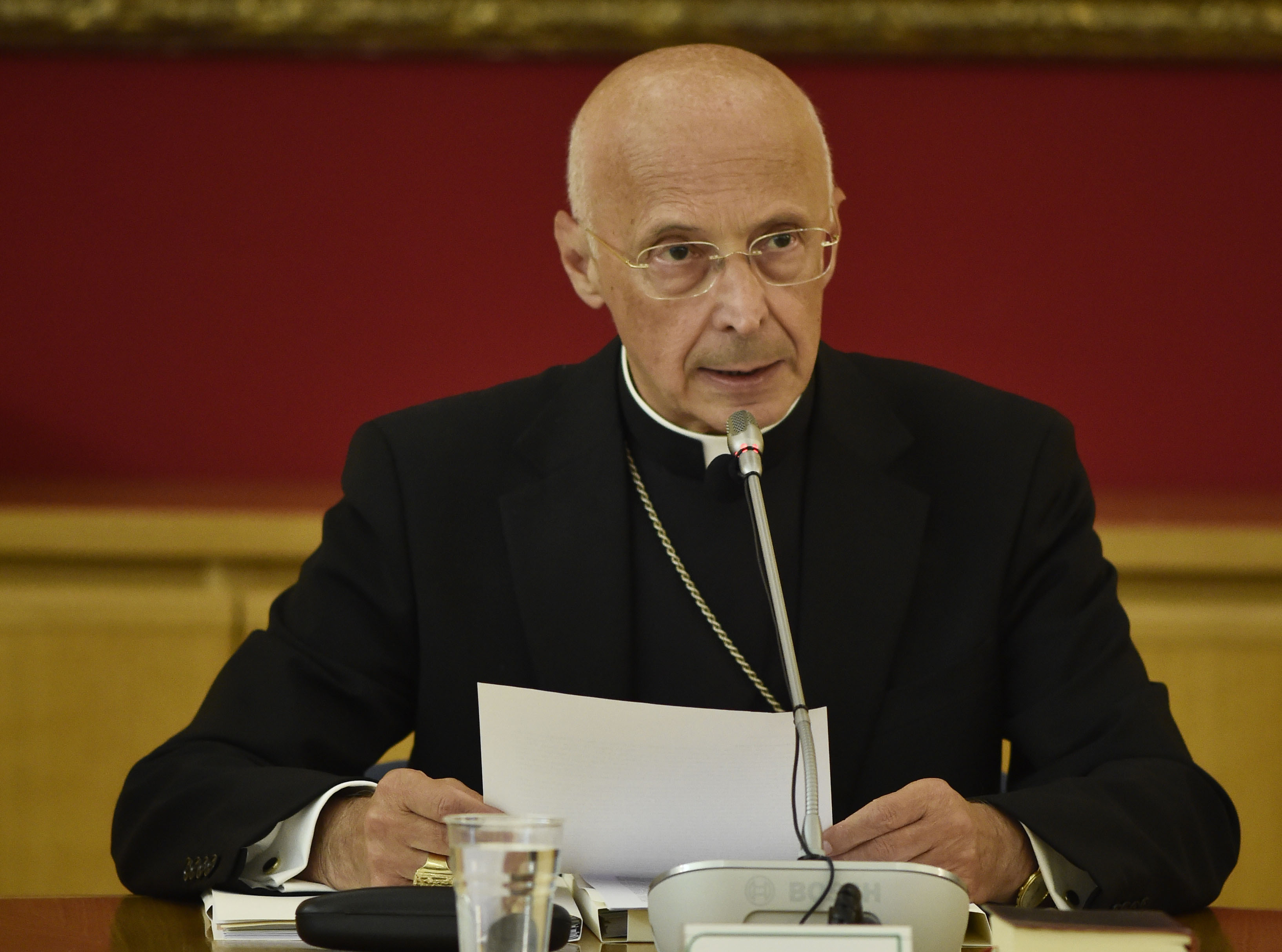CEI Permanent Council
In the accounts of the “tragic, prolonged, dramatic” earthquake also emerged “the best side” of Italy: the centre and the heart of the prolusion by CEI President Cardinal Bagnasco that opened the Permanent Council. 22 million Euros collected so far by charity offerings, over one million Euros from taxpayers’ contributions and 300 thousand by the interested dioceses. Proposals include: “following closely” the adoption of income schemes for social inclusion as well as the end-of-life Bill, and facing the challenge of unaccompanied minors. Pastoral themes included priests, parishes and youths.

The “tragic, prolonged, dramatic” accounts of the earthquake which in the past months has lashed – and still lashes – central Italy, “with the constant tremors, the heavy snowfall, victims, casualties, devastated homes, churches and towns completely destroyed” also occasioned “gestures of closeness and solidarity towards the affected populations”, said Cardinal Angelo Bagnasco, CEI President, in the opening remarks – that also constituted the heart – of his prolusion at the Permanent Council of Italian Bishops that opened in Rome, ongoing until Wednesday 25. Reiterating the Pope’s words, Bagnasco thanked first of all “the parish priests who did not leave their lands”, and then “the extended hands of so many people who helped overcome this nightmare.” The tragedy of the earthquake “has also brought to the fore the best side of our Country, of our people, ready to risk their own lives to save that of others.”
To date, donations from Catholic communities nationwide in response to the special collection for the affected areas launched by the Italian Bishops’ Conference amount to almost 22 million Euros, in addition to one million euro earmarked from taxpayers’ Church contributions “on the first day of the earthquake”, and to 300 thousand euro allocated by all interested dioceses “to rebuild churches and property devoted to pastoral ministry” damaged by the earthquake.
After thanking citizens and national institutions, notably the Civil Protection, Bagnasco thanked “the many world Countries – some of which are among the world’s poorest nations – for their contribution.” “Unity” and “responsibility”, were the key words of President Mattarella, reaffirmed by the Italian Church, “in full unity of intention.”
“Since the outbreak of the crisis the number of people in conditions of extreme poverty rose by 155%, amounting to 4.6 million today.”
“These numbers represent the faces and the lives of hundreds of thousands of families who received immediate support in our dioceses and parishes, in our counselling centres, in our Associations and Confraternities.” But it’s not enough: “utmost attention should be paid to the delegated Legislation on the introduction of income schemes for social inclusion (REI) and to the adoption of the National Plan against poverty”, since “the economic crisis continues to take a toll on our people, especially on the young and in the south of the Country”, His Eminence said.
While the economic crisis rages on, and the number of people in situations of extreme poverty increases, “political debates focus on other issues, such as end-of-life” that has“ delicate and controversial implications in terms of informed consent, treatment plan, and advance directives for medical decisions”, the Cardinal underlined, conveying concern over the “legislative proposals that present life as a good that is ultimately entrusted to the individual’s self-determination, thereby unbalancing the bond of trust between the patient and the physician.”
“Vital support such as assisted hydration and nutrition”, for example, “would be placed on a par with therapies, that could be interrupted at any moment”, Bagnasco pointed out.
In the part of the prolusion devoted to the “tragedies that relentlessly afflict entire peoples, victims of persecution and violence, of poverty and war”, the Cardinal made an appeal to address “the situation of unaccompanied minors, exposed to all kinds of abuses.” “The Church – starting with our parishes, with the Migrantes Foundation centres and with diocesan Caritas – is on the front line of reception”, he reiterated.
Two proposals from CEI: “Granting citizenship to minors who completed early school education” along with “the possibility of placing unaccompanied minors in the care of foster homes.”
“Episodes of unfaithful ministry and objective scandal are cause of suffering, yet the feeling of esteem and admiration for the clergy as a whole remains unscathed.” This was the “trusting, grateful thought” to the priests, at the centre of the “listening tasks, of the collegial debates and reflections conducted in the past two years in the General Assembly, in the Permanent Council and in the regional Bishops’ Conferences,” which in the coming days will culminate in the examination of the document on the renewal of the clergy against the backdrop of “the concrete life of our parishes and within the pastoral community”, a “place of patient welcome open to everyone.”
The bishops are “responsible” for the formation of young people, “along with the families and with other agents of education”; highlighting this point, the CEI President expressed his gratefulness to the Pope for having chosen young people as the theme of the upcoming Synod:
“Near them, for them and with them we intend to bear witness to the reasons of life, making them be enamoured with the faith in Jesus Christ to find the answers to the heart’s deepest questions, those questions that the dominant culture wishes to divert them from or to dismiss, by proposing misleading paths.”
Christian unity is “decisive, for the faith of the world.” At the end of the prolusion the Cardinal echoed the Pope’s words during the visit to Sweden on the occasion of the fifth centenary of Luther’s Reformation. “We cannot erase what has happened. But we don’t want our mutual relations to be marred by the burden of past mistakes”. “We must undertake every step – however small – on the path leading towards fraternal communion”, was the invitation to local communities. The final thoughts went to the future work “with a confident glance ahead of the upcoming General Assembly, where we will be called to elect the three candidates to CEI’s Presidency.”